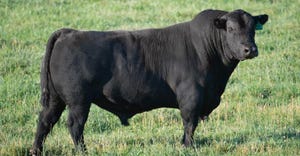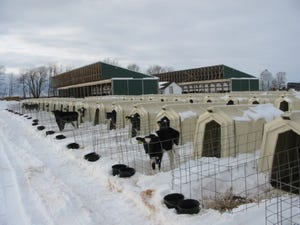Maple Leaf Foods investing $660m to build poultry facility in Ontario
Company to close three sub-scale and aging plants in Ontario by 2022.

Maple Leaf Foods has announced plans to build a $660 million value-added fresh poultry facility in London, Ont. The new 640,000 sq. ft. facility is expected to be one of the most technologically advanced poultry processing plants in the world, with leading-edge food safety, environmental and animal welfare processes and technologies, the company said.
Funding for the project includes a capital investment of approximately $605.5 million from Maple Leaf Foods, an investment of $34.5 million from the government of Ontario and a $20 million investment from the government of Canada under the Strategic Innovation Fund. In addition, Maple Leaf is receiving an $8 million loan from the AgriInnovate Fund. As part of the federal funding agreement, Maple Leaf will invest an additional $5 million over the next five years on projects that accelerate adoption of advanced manufacturing and production technologies and support its goal to reduce its environmental footprint 50% by 2025.
"This world-class facility will enable Maple Leaf to meet the steadily growing consumer demand for premium, value-added poultry products and strengthen Canada's food system," Maple Leaf president and chief executive officer Michael McCain said. "It will incorporate leading-edge food safety, environmental and animal care technologies that advance our vision to be the global leader in sustainable protein. This is a historic investment in the Canadian poultry sector, providing significant stakeholder and economic benefits and ensuring that Canada has sufficient domestic processing capacity to meet forecasted poultry production and demand."
The strategic investment will deliver a solid return on capital and create significant shareholder value, Maple Leaf noted. The project is expected to deliver annualized benefits of $105 million to the company's adjusted earnings before interest, taxes, depreciation and amortization (EBITDA) on a run-rate basis within 12 months of completing start-up and by the end of 2023. Based on current sales, adjusted for recent acquisitions, the company estimates that this will contribute more than 270 basis points to the current adjusted EBITDA margin.
The project is expected to be accretive to earnings beginning in 2022 and contribute to the company achieving its adjusted EBITDA margin target of 14-16%.
"Once constructed, this new poultry facility will be a significant contributor to our overall adjusted EBITDA margin target and will provide tremendous long-term strategic value in an important growing component of our business," McCain added.
Construction at the London site is expected to begin in the spring of 2019, with start-up planned to commence in the second quarter of 2021. The new plant will initially support more than 1,450 direct full-time and part-time jobs, with additional job growth as production volumes increase over time. Maple Leaf will work closely with local agencies to recruit and train people and provide skilled jobs in a safe and inclusive workplace. Construction is expected to generate approximately 300 jobs, with almost 85% of project expenditures supporting domestic construction and installation contractors. The facility is expected to create a further 1,400 indirect jobs in the supplies and services sector and generate an estimated $1.2 billion of annual economic activity once it is fully operational.
“Our government is excited to invest in Maple Leaf Foods' project to help bring new innovations to Canada's food processing industry, keep Canada competitive in the global market and create new middle-class jobs in Ontario. This new state-of-the-art facility demonstrates how innovation is creating jobs and helping the environment with more sustainable poultry processing,” Canada’s minister of innovation, science and economic development Navdeep Bains said.
Lawrence MacAulay, minister of agriculture and agri-food, added, "Canada's agri-food industry is a key driver of innovation and well-paying jobs across the country. Our government is proud to invest in Maple Leaf Foods, helping to position Canada as a globally competitive player in the food processing sector and to increase the competitiveness and sustainability of our agricultural sector.”
Chicken is the most consumed and fastest-growing meat protein in Canada, offering versatility, nutrition and a lower environmental footprint, the company said. There is particularly high demand for raised-without-antibiotics and halal chicken products, where Maple Leaf has the leading national brands.
The scale facility will address constraints in Maple Leaf's current Ontario network, enhance operating efficiencies and expand its value-added product mix and capacity to meet growing consumer demand, Maple Leaf said.
The decision to proceed followed an extensive review by the company's management and board of directors, led by a special working group that conducted a detailed analysis of all the strategic, capital and operational elements, risks and returns and alternatives to optimize return on capital. As an indication of the rigor of this process, the new facility is approximately 90% design-engineered, providing a high degree of certainty about project costs and operational outcomes. Maple Leaf expects to incur one-time costs of approximately $140 million, including approximately $45 million in net cash restructuring and other related costs. The company plans to finance this investment through a combination of cash flow from operations and debt.
Plant closures
Maple Leaf also announced that production from its three sub-scale and aging plants in Ontario will eventually be consolidated into the new facility. The company's plant in St. Marys, Ont., is expected to close by late 2021, while its plants in Toronto and Brampton, Ont., are expected to close by mid-late 2022.
“Each of these plants is 50-60 years old, with location, footprint and infrastructure constraints that limit opportunities to expand and modernize to meet growing market demand,” the company said, adding that it will work with local communities and government to find alternate uses for the facilities when they eventually close.
"We deeply regret the impact that these eventual closures will have on our people and communities," McCain said. "While these closures are several years away, we are informing our people well in advance, allowing us to openly communicate and support them through this long-term transition. We will provide them with job opportunities at the new facility and other Maple Leaf plants and services to help them eventually secure new employment."
About the Author(s)
You May Also Like



.png?width=300&auto=webp&quality=80&disable=upscale)

